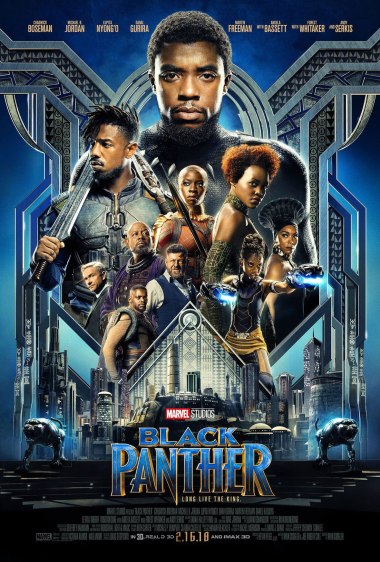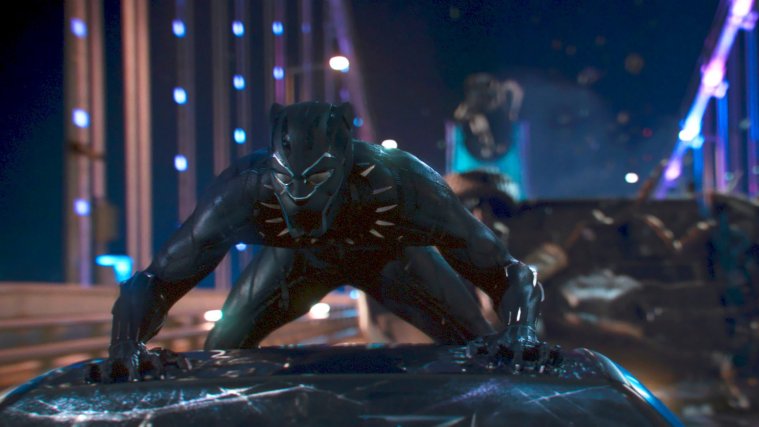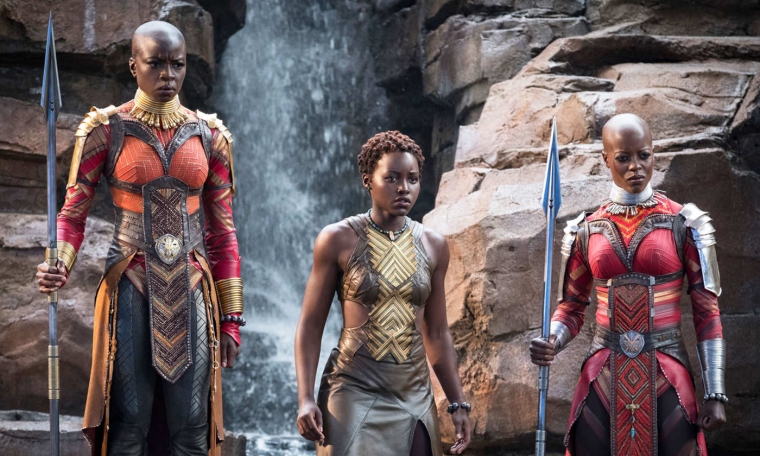There are a string of inevitabilities tethered to every new instalment in the Marvel Cinematic Universe. Vast box-office receipts are a guarantee (Marvel has accumulated such a devoted fanbase that any director could sleepwalk to a three-hundred-million-dollar hit.) An elite, top-of-its-game ensemble is another. There’s a level of quality control too, below which it has become seemingly impossible for Marvel’s cinematic projects to sink below.
tethered to every new instalment in the Marvel Cinematic Universe. Vast box-office receipts are a guarantee (Marvel has accumulated such a devoted fanbase that any director could sleepwalk to a three-hundred-million-dollar hit.) An elite, top-of-its-game ensemble is another. There’s a level of quality control too, below which it has become seemingly impossible for Marvel’s cinematic projects to sink below.
But flip the coin and one will find less flattering inevitabilities: a certain element of beaten path adherence, of structural routine and formula as sure-fire as a Stan Lee cameo, and the forever looming fear that each MCU instalment has the prescribed fate of dazzling fleetingly before consigning to the role of a cog in the larger machine.
How could each individual stroke of the brush not be awash in the larger canvas, when said canvas is this dense? We’ve had eighteen MCU movies now, all in quick order. Sure, James Bond has had 24 instalments, but at least they’ve been spaced out over nearly 60 years. Marvel’s self-produced series of movies have all come in less than ten.
The question then, is how a director can leave their fingerprints on a cinematic cosmos that dwarfs any one person. Taika Waititi made a valiant effort with his kinetic, off-kilter comedy in Thor: Ragnarok. James Gunn fared even better with his unabashedly nostalgic treatment of Guardians of the Galaxy (both volumes.) But no one has accomplished that unenviable task to the degree of Ryan Coogler, who, with Black Panther, has made for mine the finest MCU movie yet.
Here is a film that feels alive and new, paying its debts to the larger franchise that houses it, whilst standing discerned upon its own two feet. More than a Marvel movie made by Ryan Coogler, Black Panther is a Ryan Coogler movie made with Marvel resources, touting a look, sound and centricity on character that begets unprecedented shades of originality in this ever-expanding cinematic tapestry.
It shouldn’t come as a surprise that Coogler is such a fine fit for the job— he’s both a natural custodian of the onscreen black experience (an integral ingredient of Black Panther’s unique identity; never has a superhero movie immersed itself in black culture as this film does), and a natural at breathing fresh life into seemingly exhausted material, ala Creed.
Where the fresh life in that prior movie manifested itself in a staggering cinematic flair, an injection of new personalities and a reconfiguring of old ones however, Black Panther’s manifests itself in the grafting of an entirely original landscape that is populated with faces that are as engaging as they are pleasantly unfamiliar.
Wakanda is the setting, a third world African country to the naked eye, but one that underneath its guise is the most advanced nation in the world. The cornerstone of Wakanda’s secret advancement is vibranium, the most valuable, dexterous material in the world which happened upon the Wakandans via a meteorite crashing into their turf some centuries ago, and which the natives have subsequently laced throughout their technology and infrastructure to build a super civilisation.

And it’s a pretty cool civilisation to look at. Think of Wakanda as Earth’s very own Asgard, rife with shimmering neons and labyrinths of towering skyscrapers, interspersed with stretches of lush green mountainsides and cascading waterfalls. It’s a sleek futurism carefully imbued with parcels of ancient Africana, where the tribal and space-age cross; an indelible blend. Imagine Blade Runner meets David Lean meets Madagascar. And the soundtrack follows suit, Ludwig Goransson’s score niftily underlining contemporary hard-edged hip-hop with primitive tribal rhythms. Even at base level, this is a film with a flavour all its own.
One element that is somewhat familiar is the Black Panther himself, who we first brushed shoulders with in Civil War. Chadwick Boseman plays T’Challa, the man inside the suit and assumer of Wakanda’s throne, continuing Marvel’s implacable habit of note-perfect casting. Boseman serves as a model of quiet nobility and understated intensity in the title role, whilst lightly dashing that steely demeanour—“I never freeze” T’Challa tells his sister before embarking on an assignment, insulted he wold have his level-headedness queried—with the faintest traces of vulnerability as he grapples with his new duties as head of his people.
Boseman mines considerable vitality from T’Challa, but the truth is there isn’t all that much to the character outside of his proficiency in combat and his wrestles with Kingship. A less intelligent screenplay mightn’t have known exactly what to do with him. Thankfully Coogler, who co-wrote Black Panther with Joe Robert Cole, does. Together the two writers open-up their narrative’s field of vision to situate T’Challa in the drama not as a focal point, but as a central figure in a larger ensemble populated with characters who can each command the story when needed.
Letitia Wright plays Shuri, T’Challa’s kid sister and the Q to his Bond, running circles in the tech-savvy stakes around even Marvel’s own Tony Stark. She’s also a perennial scene stealer, her firecracker energy and budding sass allowing her to own the camera at will.

If Shuri’s the brains, then fellow women Nakia and Okoye offer much of the brawn. Lupita Nyong’o and Danai Guirira play the warriors respectively, the former a spy and T’Challa’s ex-lover, the latter the head of Wakanda’s special forces unit, both bearers of a finely tuned moral compass and a penchant for bad-assery. These are women not to be messed with, and characters who Coogler isn’t afraid to task with much of the story’s heavy lifting. No need for assistance from the likes of Tony Stark and Steve Rogers here.
Daniel Kaluya (Oscar nominated for Get Out) has a more volatile moral compass, torn by his duty to Wakanda and his malice for colonialists. But no one intrigues more than Michael B. Jordan’s Killmonger, Marvel’s most compelling villain to date, a fierce warrior in his own right who invades Wakanda to irreparably up-end the nation’s status quo.
Rare is the action film that extends its villain this degree of empathy. Not only is Killmonger a viable threat to our heroes, but he’s also a man with an ethos and a scheme born out of an understandable logic. It’s certainly true that the violent means outweigh the end, but this is an end that, at least in small part, is to be sympathised with, ushering with it a racial consciousness that film’s of this nature seldom have the nerve to hold—a complete subversion of the evil for evil’s sake antagonists even Marvel’s most thoughtful writer’s so regularly resort to.
Not since Christopher Nolan’s Dark Knight trilogy has a comic-book film so seamlessly reconciled blockbuster and art-house sensibilities; has a filmmaker reconciled their own artistic ambitions with their studio’s. If there’s one demarcating factor for Black Panther, it is that; that breadth of vision, that scope of character, that leaving an auteuristic impression on a film that is inherently corporate in conception. Black Panther, more than a box-office venture or a precursor to the next Avengers movie, is a Ryan Coogler film; a sophisticated character study with its hands and feet locked in moral considerations. Black Panther is also as much the new MCU benchmark as it is a watershed moment for the genre in all. Suffice to say, Infinity Wars has its work cut out for it.
Rating:
3.75/4

